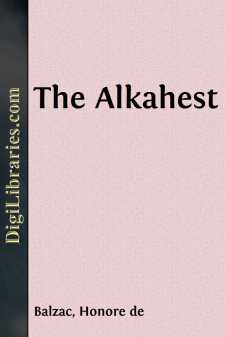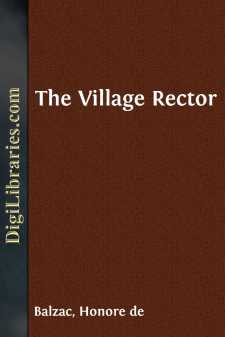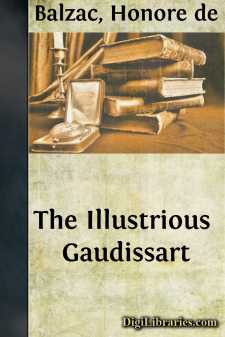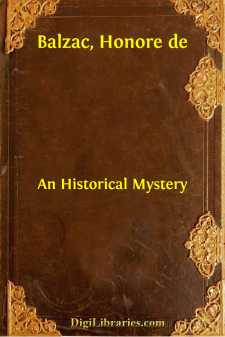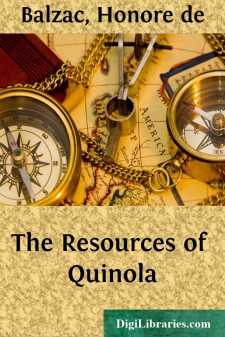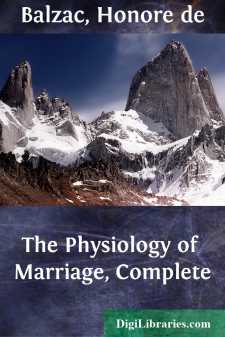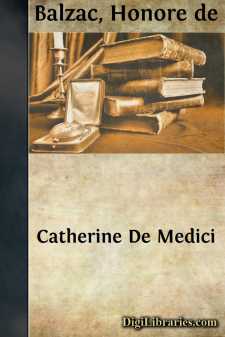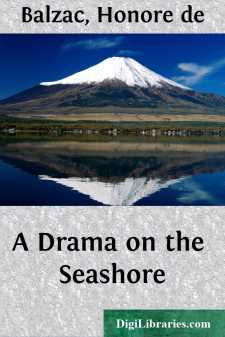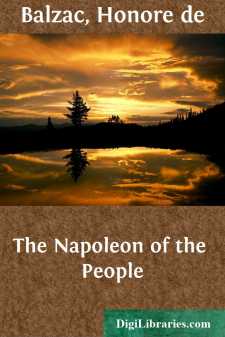Categories
- Antiques & Collectibles 13
- Architecture 36
- Art 48
- Bibles 22
- Biography & Autobiography 813
- Body, Mind & Spirit 142
- Business & Economics 28
- Children's Books 17
- Children's Fiction 14
- Computers 4
- Cooking 94
- Crafts & Hobbies 4
- Drama 346
- Education 46
- Family & Relationships 57
- Fiction 11829
- Games 19
- Gardening 17
- Health & Fitness 34
- History 1377
- House & Home 1
- Humor 147
- Juvenile Fiction 1873
- Juvenile Nonfiction 202
- Language Arts & Disciplines 88
- Law 16
- Literary Collections 686
- Literary Criticism 179
- Mathematics 13
- Medical 41
- Music 40
- Nature 179
- Non-Classifiable 1768
- Performing Arts 7
- Periodicals 1453
- Philosophy 64
- Photography 2
- Poetry 896
- Political Science 203
- Psychology 42
- Reference 154
- Religion 513
- Science 126
- Self-Help 84
- Social Science 81
- Sports & Recreation 34
- Study Aids 3
- Technology & Engineering 59
- Transportation 23
- Travel 463
- True Crime 29
Sort by:
by:
Honore de Balzac
A PRINCE OF BOHEMIA "My dear friend," said Mme. de la Baudraye, drawing a pile of manuscript from beneath her sofa cushion, "will you pardon me in our present straits for making a short story of something which you told me a few weeks ago?" "Anything is fair in these times. Have you not seen writers serving up their own hearts to the public, or very often their mistress' hearts...
more...
by:
Honore de Balzac
CHAPTER I There is a house at Douai in the rue de Paris, whose aspect, interior arrangements, and details have preserved, to a greater degree than those of other domiciles, the characteristics of the old Flemish buildings, so naively adapted to the patriarchal manners and customs of that excellent land. Before describing this house it may be well, in the interest of other writers, to explain the...
more...
by:
Honore de Balzac
I. THE SAUVIATS In the lower town of Limoges, at the corner of the rue de la Vieille-Poste and the rue de la Cite might have been seen, a generation ago, one of those shops which were scarcely changed from the period of the middle-ages. Large tiles seamed with a thousand cracks lay on the soil itself, which was damp in places, and would have tripped up those who failed to observe the hollows and ridges...
more...
by:
Honore de Balzac
CHAPTER I The commercial traveller, a personage unknown to antiquity, is one of the striking figures created by the manners and customs of our present epoch. May he not, in some conceivable order of things, be destined to mark for coming philosophers the great transition which welds a period of material enterprise to the period of intellectual strength? Our century will bind the realm of isolated...
more...
by:
Honore de Balzac
CHAPTER I. JUDAS The autumn of the year 1803 was one of the finest in the early part of that period of the present century which we now call "Empire." Rain had refreshed the earth during the month of October, so that the trees were still green and leafy in November. The French people were beginning to put faith in a secret understanding between the skies and Bonaparte, then declared Consul for...
more...
by:
Honore de Balzac
Had the author of the following play written it merely for the purpose of winning for it the universal praise which the journals have lavished upon his romances, and which perhaps transcended their merits, The Resources of Quinola would still have been an excellent literary speculation; but, when he sees himself the object of so much praise and so much condemnation, he has come to the conclusion that...
more...
by:
Honore de Balzac
INTRODUCTION "Marriage is not an institution of nature. The family in the east is entirely different from the family in the west. Man is the servant of nature, and the institutions of society are grafts, not spontaneous growths of nature. Laws are made to suit manners, and manners vary. "Marriage must therefore undergo the gradual development towards perfection to which all human affairs...
more...
by:
Honore de Balzac
INTRODUCTION There is a general cry of paradox when scholars, struck by some historical error, attempt to correct it; but, for whoever studies modern history to its depths, it is plain that historians are privileged liars, who lend their pen to popular beliefs precisely as the newspapers of the day, or most of them, express the opinions of their readers. Historical independence has shown itself much...
more...
by:
Honore de Balzac
A DRAMA ON THE SEASHORE Nearly all young men have a compass with which they delight in measuring the future. When their will is equal to the breadth of the angle at which they open it the world is theirs. But this phenomenon of the inner life takes place only at a certain age. That age, which for all men lies between twenty-two and twenty-eight, is the period of great thoughts, of fresh conceptions,...
more...
by:
Honore de Balzac
THE NAPOLEON OF THE PEOPLE Napoleon, you see, my friends, was born in Corsica, which is a French island warmed by the Italian sun; it is like a furnace there, everything is scorched up, and they keep on killing each other from father to son for generations all about nothing at all—'tis a notion they have. To begin at the beginning, there was something extraordinary about the thing from the...
more...



